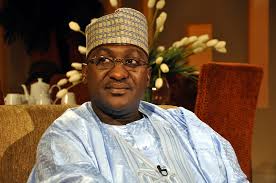FG to Review Crude Oil Benchmark
The Federal Government has disclosed plans to send the National Assembly a proposal for the revision of the crude oil benchmark proposed in the Medium Term Expenditure Framework, MTEF, submitted for the 2015 budget.
The Minister of Finance, Ngozi Okonjo–Iweala, revealed this in Abuja on Sunday at a media briefing while discussing the impact of the declining global oil prices, stating that the revision was one of several strategic responses to counter the effect of the dropping prices.
According to her, the proposal which is meant to help protect growth, while stabilising the country’s economy, would involve a reduction of the $78 per barrel oil benchmark earlier proposed in the MTEF to about $73 per barrel as oil prices averaged $85 and $86 per barrel when the MTEF was submitted to the National Assembly.
She said:“Prices are still trending down. Some estimates say this may continue. But, nobody is sure where it will end up. Under these circumstances, we are adopting a scenario-based approach. We are proposing a new benchmark price of $73 per barrel we are sending to the National Assembly for consideration. Based on that we will revise the entire MTEF.
“The aim of the reviews is to ensure that the economy adjusts to the new trend in a stable manner. The adjustments are not just about tightening the belt, but trying to increase non-oil revenue to make up for the shortfall in oil revenue.”
She said the diagnoses conducted on the economy by the Federal Inland Revenue Service, FIRS, on leakages in the economic system revealed that only 25 per cent of the Small and medium enterprises (SMEs) in the country were currently registered as tax payers, while the number of audits completed were very low.
Steps taken to plug the loopholes, the minister said, had helped government raise revenue through non-oil revenue sources by additional N160 billion, adding that government has resolved to intensify efforts to improve efficiency, making it easier for people to pay their taxes.
Government, she said, was determined to make another N160 billion over the 2014 figures, apart from making efforts to improve the level of internally generated revenue by collaborating with banks and revenue generating agencies to ensure that revenues collected were remitted on time to government coffers.
Other measures the government was considering include surcharges on some luxury items, such as champagne, alcoholic beverages, yacht, and luxury cars to ensure that well-to-do Nigerians were made to pay a bit more to make the economy and government coffers more robust. In the medium term, she said government would be looking at adjustments to its tax policies to enhance revenue drive.
On expenditure, the minister said though there would be adjustments to remove constraints to the country’s economic growth, it would not affect government’s continued commitment to invest in infrastructure, agriculture, jobs creation, housing, human development, education, and health as well as security.
In addition, she said government would be proposing new measures in the budget to curb expenditures on new equipment, and limit foreign travels by public officials and civil servants to only the essential ones, while all trainings would only be allowed within the country in 2015.
“Mr. President has instructed that only critical travels, which would be examined closely by the Head of Service and the Director General Budget. Any other travel would have to be funded by whoever is inviting the public servant,” she said.
Government, she said, would, in liaison with the Civil service and the lawmakers, look at entities with overlapping responsibilities as well as Commissions that have completed their work and should be closed down in line with the recommendation of the Steve Oronsaye committee on the rationalization of the civil service.
She rejected suggestions that more money should be printed and supplied to the economy as a way out of the crisis, saying this would do more harm to the poor that good, by creating spiralling inflation.
“Printing money without adequate revenue support will lead to serious consequences for the country. This prescription will victimize the poor and middle class that it is supposedly protecting.”
“The expectation is that oil prices will continue to go down, and may actually be a permanent shock. But, Nigeria has got to get ready to manage it. We have the capacity, the economic base, the scenario and additional measures to tackle the problem should the price fall even below the new benchmark,” she said.



